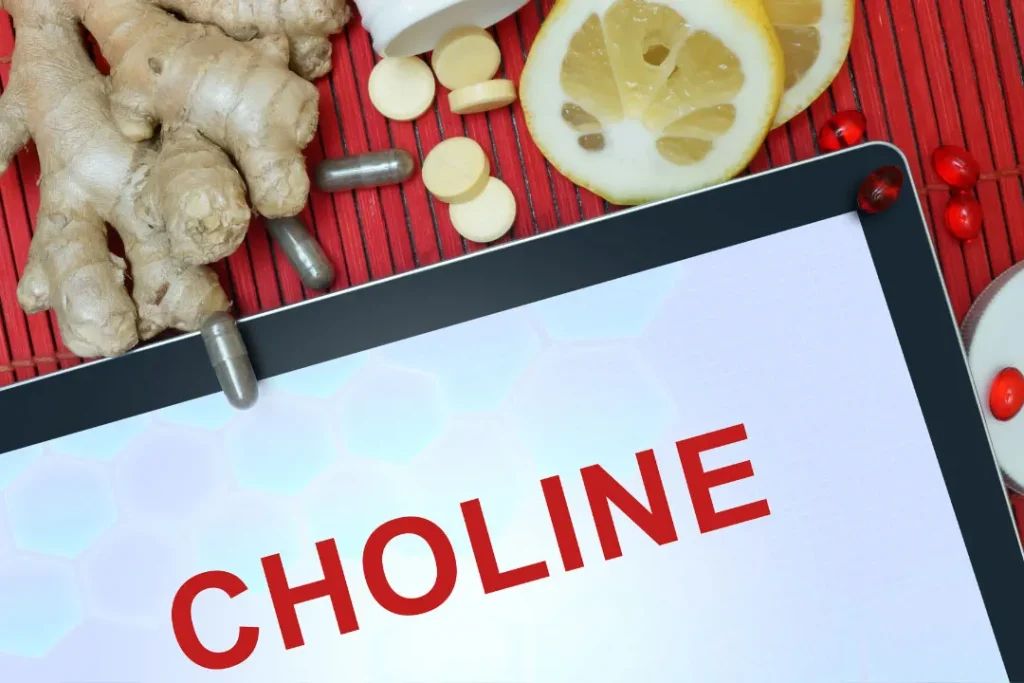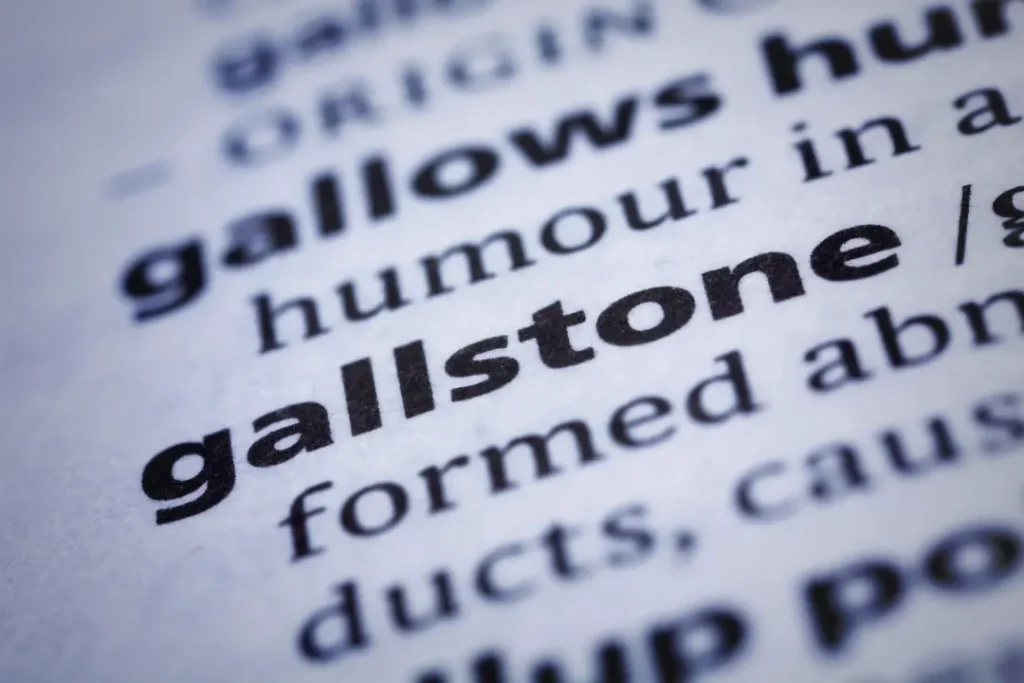Choline is an essential nutrient with many critical roles in health; choline deficiency can lead to serious health issues, such as impaired cognitive function and liver damage. Learn to identify choline deficiency symptoms and how you can ensure adequate choline levels to avoid dangerous complications.
Choline is a cation, a type of molecule with an electric charge, and it serves as an essential nutrient for human health. It plays an especially important role in the production of cell membranes, which regulate the passage of substances into and out of our cells. Since our bodies are composed of cells, it’s no exaggeration to say that choline is vital for biological processes throughout the entire human body.
Choline is classified as an essential nutrient because the human body cannot synthesize it. Therefore, it’s important to obtain sufficient levels of choline through diet. While choline is present in many everyday ingredients, it is especially abundant in seafood. However, most Americans rely on meat rather than fish as their daily protein source.
As a result, choline deficiency is very common, even among otherwise healthy people. Fortunately, addressing choline deficiency is relatively simple: all you need to do is get more choline in your diet. If the deficiency is unaddressed, however, it can lead to serious conditions that have broader implications for overall health. The following are some choline deficiency symptoms to watch out for.
You May Also Like:
What’s the Best Chromium Supplement? Top 5 Products Reviewed.
Healthy Truth’s Organic Superfood Energy Squares Are Our Top Choice of Superfood Snacks
Don’t Ignore the 7 Dangerous Choline Deficiency Symptoms is an original (NewsHealthWatch) article.
Choline deficiency symptoms:
Cognitive dysfunction
One potential symptom of choline deficiency is cognitive dysfunction—particularly issues related to learning and memory. In one 2011 study, researchers closely examined the diets of a large cohort of 1,391 adults across different age groups to determine their choline intake. The participants in the study then underwent neuropsychological exams to test their cognitive abilities. The study found a positive correlation between higher choline intake and improved visual and verbal memory. Cognitive function is affected by the body’s choline intake and its efficiency in metabolizing this essential nutrient. Insufficient levels of choline may have detrimental effects on cognition.

Choline deficiency symptoms:
Liver dysfunction and disease
Choline intake also affects the function of hepatocytes, which are the cells in the liver. Individuals with low choline levels are particularly susceptible to hepatic steatosis, commonly known as fatty liver disease. This condition is normally associated with alcoholism or obesity; however, a variant called non-alcoholic fatty liver disease can occur in anyone, leading to fat buildup in the liver.
A 2022 study found that people with high choline intake had lower levels of biomarkers associated with the risk of fatty liver disease. Although fatty liver disease is reversible through certain lifestyle changes, it can lead to irreversible liver damage and conditions like cirrhosis. Therefore, it’s important to monitor both fat and choline intake before you start to experience detrimental effects.

Choline deficiency symptoms:
Reduced bile flow and gallstones
Gallstones are small, solid formations of digestive fluid that form in the gallbladder. These stones can potentially migrate into the bile ducts, which are the vessels responsible for carrying bile throughout the digestive system, leading to painful blockages. Gallstone formation is often associated with high cholesterol intake and sometimes requires surgical intervention.
However, choline may prevent the formation of gallstones in the gallbladder, even in those at greater risk. A 2003 study found that switching from a high-cholesterol diet to one rich in phosphatidylcholine—a major source of dietary choline—resulted in a decrease in gallstone incidences. This was attributed to the direct preventive effects of choline on the formation of gallstones.

Choline deficiency symptoms:
Slow healing from nerve damage
Choline plays a role in various processes within the nervous system, and insufficient levels of choline can contribute to nerve damage. In a condition known as peripheral neuropathy, damaged nerves lose connection with each other and the brain. This can result in symptoms such as numbness, weakness, and eventually debilitating pain.
Nerves possess a remarkable natural healing ability; the body’s quality of neuroplasticity refers to the nervous system’s capacity to heal and remake itself, even after traumatic injury. However, the availability of choline affects the speed of this healing process. Choline can promote the regeneration of damaged nerves, speeding the process of recovery from nerve injuries. Therefore, individuals experiencing slow healing from nerve damage may benefit from additional choline intake.
Choline deficiency symptoms:
Mood disorders
Choline is vital to the healthy function of the nervous system, and the brain is no exception. Choline regulates many of our responses to stimuli, including, in some cases, our moods. In particular, feelings of anxiety have been connected to low choline intake.
In a 2009 study that reviewed plasma choline levels and anxiety symptoms among individuals ages 46-74, a statistically significant correlation was found between the lowest choline intake and the highest anxiety groups. Choline can help regulate mood and prevent excessive anxiety; it has even been studied as a potential treatment for bipolar disorder.

Choline deficiency symptoms:
Musculoskeletal aches and weakness
Many athletes take supplementary choline in order to improve their performance. While choline may not directly impact athletic performance, it does play a role in maintaining muscular health. A 2020 review of scientific research determined that choline is necessary for the metabolism of protein and for maintaining protein homeostasis within the muscles, both of which are crucial processes involved in muscle growth.
This benefit is not just useful to athletes; people who experience muscular weakness and aches can also derive advantages from this effect of choline. Choline helps rebuild damaged and painful muscles, leading to greater strength and improved overall quality of life.
Where to find a premier source of choline
An exemplary source of supplementary choline is found in Kori Krill Oil’s omega-3 supplement products. These products contain naturally extracted omega-3s from krill, which are also rich in choline. In particular, their 600 mg softgels are a good source of choline.
Owned by the world’s largest supplier of krill, Kori Krill Oil has an excellent pedigree and commitment to sustainability. Moreover, Kori Krill Oil’s products exclusively use non-GMO krill with no artificial coloring or preservatives, ensuring you can experience the full benefits of omega-3s and choline without any superfluous additives.
According to CEO Nancy Chan, “We’re focused on the health benefits that this amazing resource—krill—can provide to the consumer. We’re at the forefront of understanding the science behind the benefits of krill to be able to bring education and new krill-based products to improve consumer health.”
Choline deficiency symptoms:
Important early warning signs
The symptoms associated with choline deficiency are not to be ignored. Manifestations like mood disorders, musculoskeletal aches and pains, and slow healing from nerve damage can seem like results of entirely separate conditions, but they may be connected to something as straightforward as a deficiency in choline. Taking choline early and consistently may help prevent the development of more serious conditions. Therefore, it’s a worthy inclusion in anyone’s diet.
Additional links for further reference:
NIH Office of Dietary Supplements: Choline Fact Sheet for Consumers
AHA Journals: Choline Pathway Nutrients and Metabolites and Cognitive Impairment After Acute Ischemic Stroke
NIH National Library of Medicine: Choline in the treatment of rapid-cycling bipolar disorder
Important Note: The information contained in this article is for general informational purposes only, and should not be construed as health or medical advice, nor is it intended to diagnose, prevent, treat, or cure any disease or health condition. Before embarking on any diet, fitness regimen, or program of nutritional supplementation, it is advisable to consult your healthcare professional in order to determine its safety and probable efficacy in terms of your individual state of health.
Regarding Nutritional Supplements Or Other Non-Prescription Health Products: If any nutritional supplements or other non-prescription health products are mentioned in the foregoing article, any claims or statements made about them have not been evaluated by the U.S. Food and Drug Administration, and such nutritional supplements or other health products are not intended to diagnose, treat, cure, or prevent any disease.

